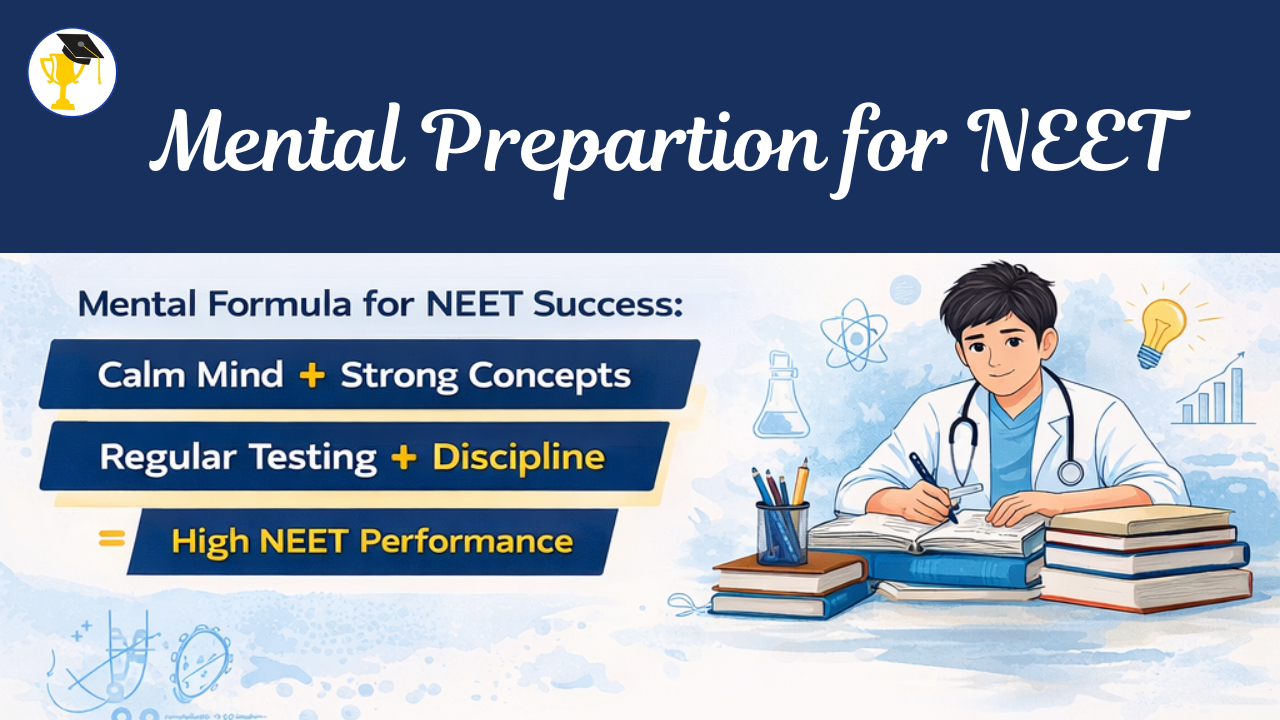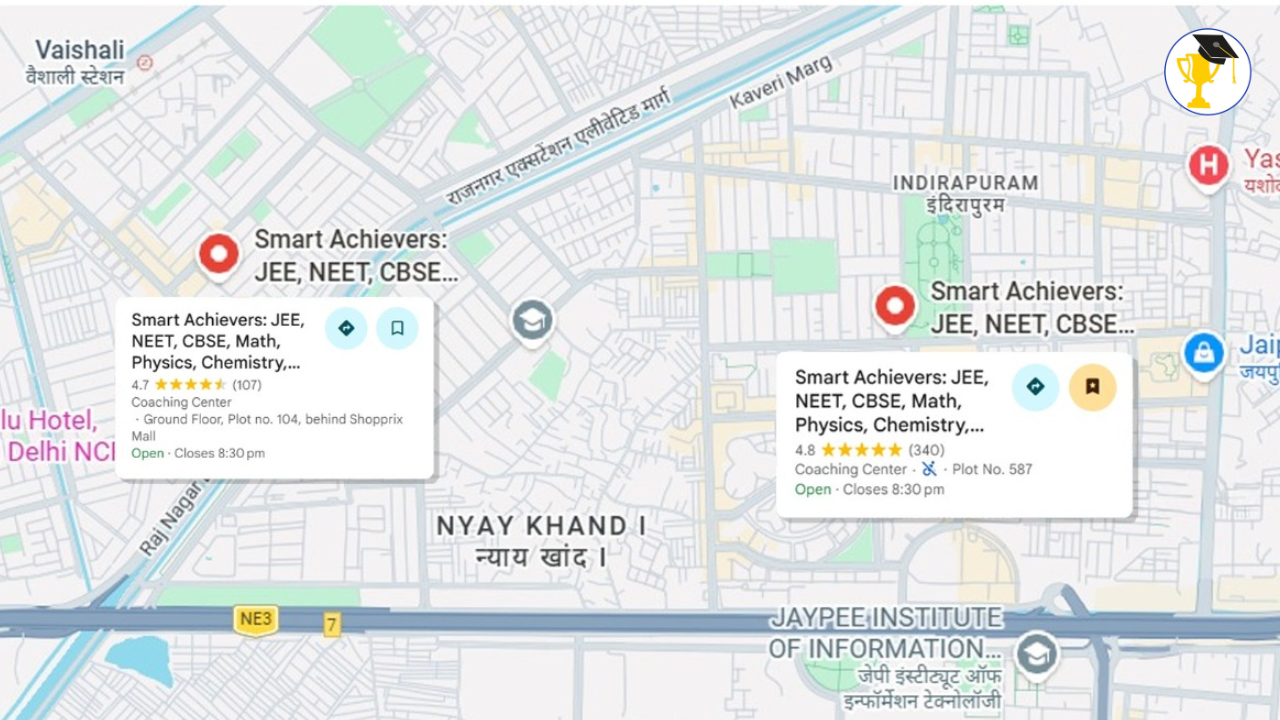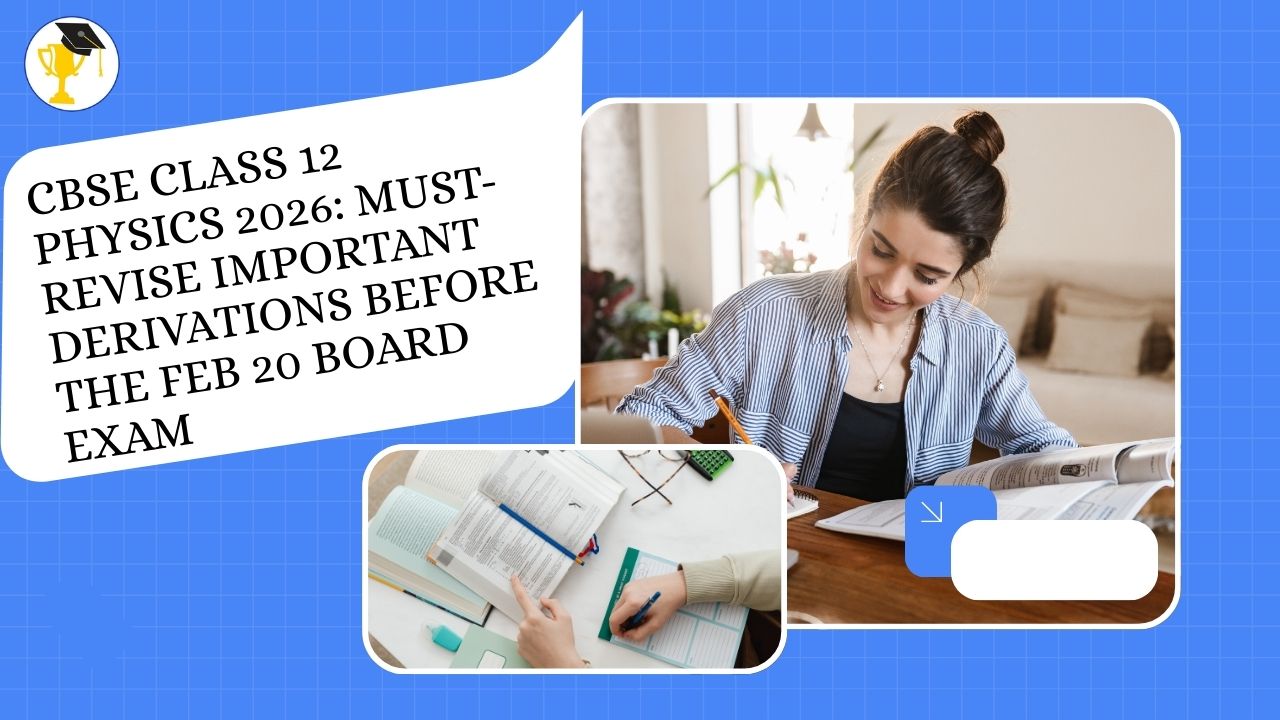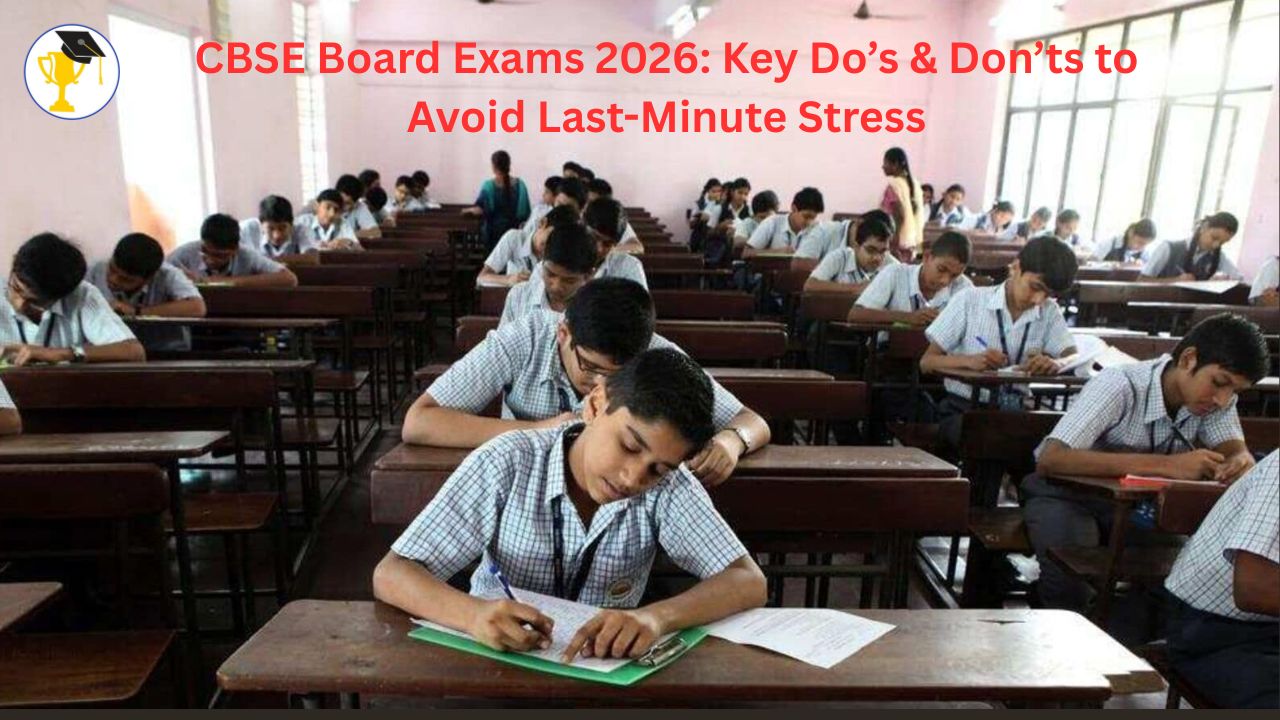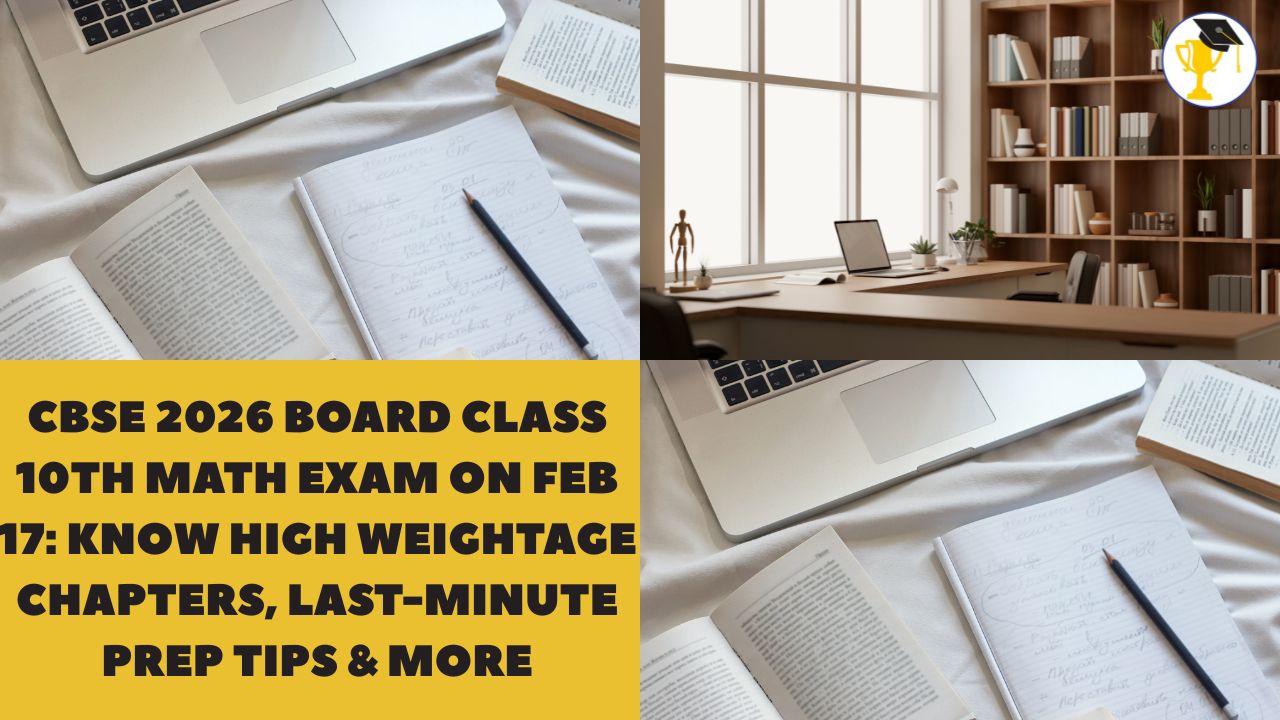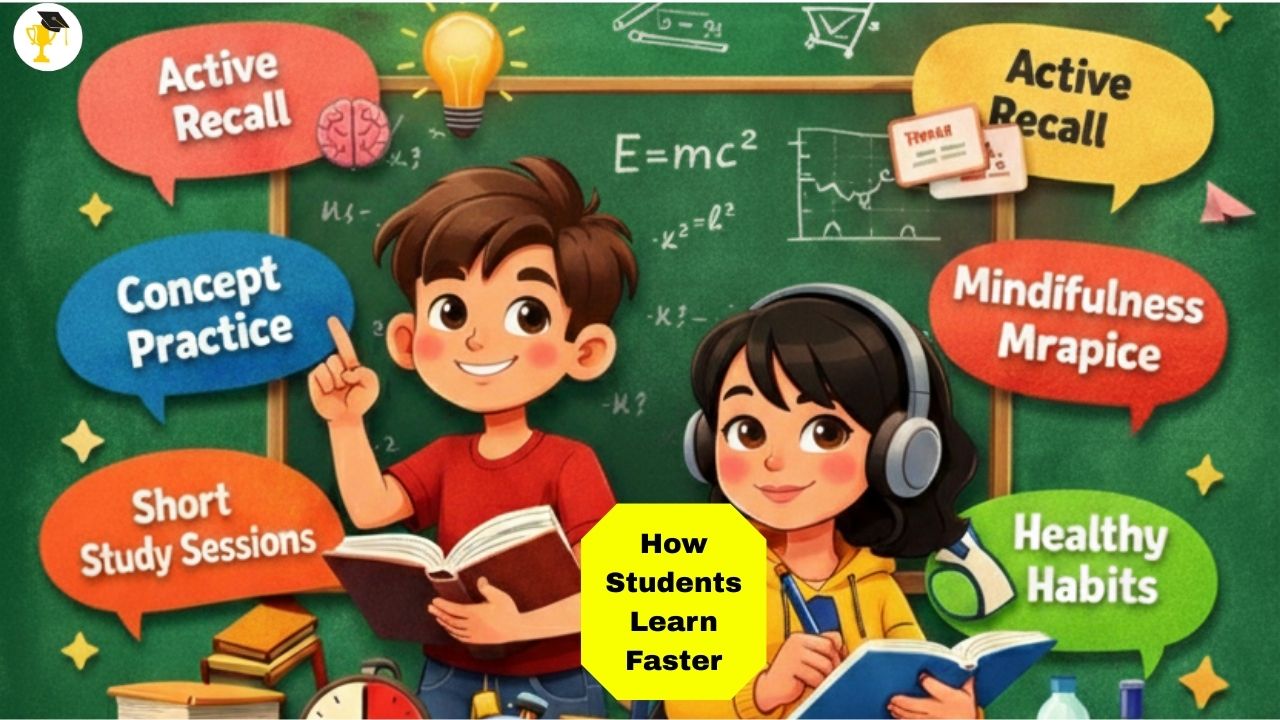Tips for Improving Your Study Habits Next Term
A new term is a fresh start and a great opportunity to rethink your study routine. Whether you’re gearing up for board exams, competitive tests, or just aiming to improve your grades, better study habits can make a world of difference. The good news? Small, consistent changes can lead to big results. Here are some easy and practical tips to help you study smarter next term.
1. Set Goals That Work for You
Having clear goals gives you direction and motivation.
Be Specific: Instead of saying, “I’ll study more,” aim for something like, “I’ll finish two chapters of Math today.”
Think Big and Small: Combine long-term goals (e.g., topping your class) with daily targets.
Write It Down: Seeing your goals on paper (or on your wall!) makes them real and keeps you accountable.
2. Build a Study Schedule You Can Actually Follow
A well-planned timetable keeps you on track and stress-free.
Balance is Key: Spend more time on subjects or topics you find challenging but don’t neglect easier ones.
Make Room for Breaks: Regular downtime helps you recharge and focus better.
Be Flexible: Life happens! It’s okay to tweak your schedule when things don’t go as planned.
%20(2).png)
3. Create a Study Zone You Love
Your environment plays a huge role in how well you study.
Find Your Spot: Choose a quiet, distraction-free place with good lighting.
Declutter: Keep only the essentials—your books, notes, and a water bottle.
Experiment: Some people focus better with soft background music or white noise—try it out and see what works for you!
4. Learn Actively, Not Passively
If you’re just reading or highlighting, you’re not doing enough.
Summarize: Put the concepts into your own words—it helps you retain them better.
Quiz Yourself: Flashcards, mock tests, or even asking a friend to test you works wonders.
Teach Someone Else: Explaining a topic forces you to truly understand it.
5. Tackle Hard Stuff When You’re Fresh
Your brain works best when it’s not tired, so tackle tricky topics early in your study session.
Start Strong: Begin with the subjects or topics you find most difficult.
End Easy: Wrap up with something lighter or more enjoyable to leave on a positive note.
How to Score 100/100 in Class 10 Maths: Master NCERT concepts, focus on high-weightage topics, practice regularly with sample papers, revise formulas daily, and manage your time effectively during the exam.
6. Take Breaks Without Feeling Guilty
Breaks aren’t lazy—they’re necessary for your brain to process information.
Pomodoro Technique: Study for 25 minutes, then take a 5-minute break. Repeat.
Move Around: Use breaks to stretch, walk, or grab a snack.
Screen-Free: Avoid social media during breaks—it’s easy to lose track of time.
7. Stay Consistent
Consistency beats cramming every single time.
Daily Commitment: Even 30–60 minutes of focused studying every day adds up.
Don’t Skip Weekends: A little studying on weekends keeps you in the habit.
Track Your Progress: Keep a checklist or journal to see how far you’ve come.
International Informatics Olympiad (IIO): A premier competition aimed at nurturing young IT talents by testing problem-solving, programming, and analytical skills, fostering innovation, and preparing students for the digital future.
8. Use Tech to Your Advantage
Technology can either be your best friend or your worst enemy—use it wisely.
Study Apps: Apps like Notion, Quizlet, or Google Keep can help organize your notes and make learning interactive.
Online Videos: Struggling with a topic? Platforms like YouTube or Khan Academy can make things clearer.
Limit Social Media: Turn off notifications while studying to avoid distractions.
9. Test Yourself Often
Self-testing is one of the best ways to learn.
Mock Tests: Take them seriously—they prepare you for exam conditions.
Past Papers: These show you the kind of questions you’re likely to face.
Analyze Mistakes: Learn from what went wrong so you don’t repeat it.
10. Take Care of Yourself
Your mind and body need to be in good shape for you to study well.
Get Enough Sleep: 7–8 hours of rest helps you concentrate better.
Eat Right: Balanced meals, plenty of water, and snacks like nuts or fruits fuel your brain.
Stay Active: Even a quick workout or walk can boost your mood and energy.
10 Math Board Exam 2025 Most Important Questions Polynomials, Quadratics, Linear Equations, AP; focus on NCERT exercises, previous years' papers, derivations, graphical solutions, and word problems. Practice step-by-step methods thoroughly for accuracy.
11. Reflect and Adjust
Not every strategy works for everyone—find what suits you.
Review Weekly: Look back on what you achieved and what you struggled with.
Be Honest: If something isn’t working, don’t be afraid to switch it up.
12. Reward Your Hard Work
A little reward can go a long way in keeping you motivated.
Set Milestones: Celebrate completing a chapter or scoring well on a test.
Treat Yourself: Watch your favorite show, enjoy a snack, or take a fun break as a reward.
13. Visualize Your Learning
Sometimes pictures are worth a thousand words.
Use Mind Maps: Connect ideas visually to make them easier to remember.
Draw Diagrams: Whether it’s a biology cycle or a physics experiment, visuals stick.
Think Real-Life: Relate theoretical concepts to real-world examples to make them memorable.
14. Focus on Quality, Not Quantity
Studying for hours doesn’t matter if it’s not effective.
Understand, Don’t Memorize: Dive deep into concepts instead of rote learning.
Limit Multitasking: Focus on one topic at a time for better results.
Be Thorough: It’s better to fully understand a few topics than skim through many.
Conclusion
Improving your study habits doesn’t mean overhauling your life—it’s about making small, consistent changes that add up over time. With clear goals, smart planning, and a little self-care, you’ll notice a big difference in your academic performance.
Take it one step at a time, and don’t forget to celebrate your progress along the way. Good luck with the next term—you’ve got this! ?????
 STUDY MATERIALS
STUDY MATERIALS
 COURSES
COURSES
 MORE
MORE


%20(2).png)

